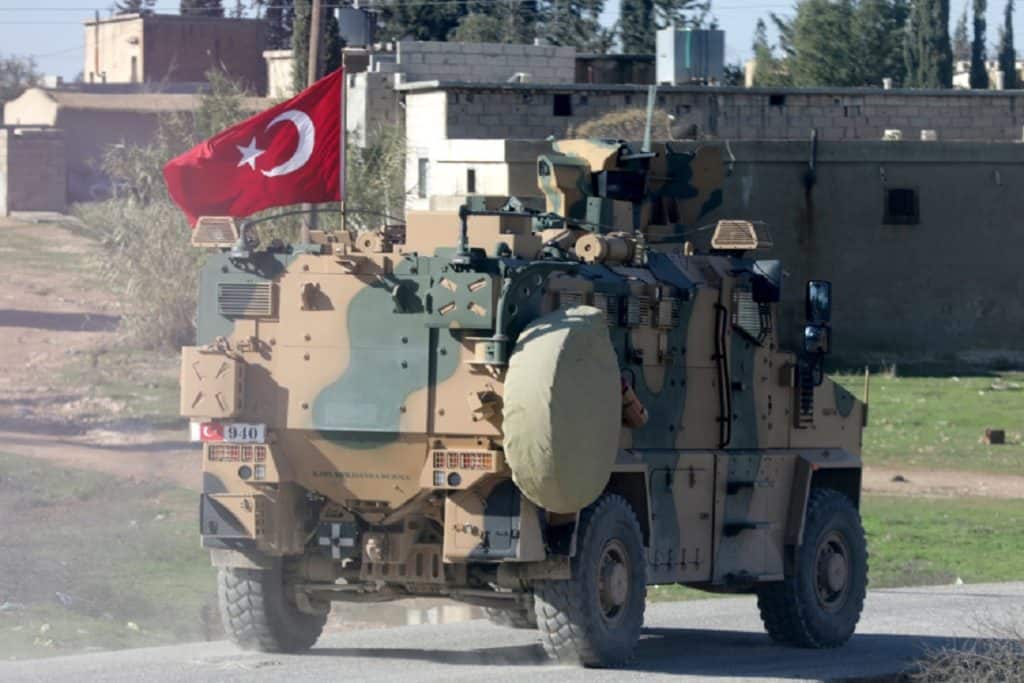By Denis Korkodinov
As a result of the military operation in Khan Sheikhun, it was possible to delay the Turkish offensive in the north-west of Syria. The recent statement by Recep Erdogan that Turkish troops are ready to advance deep into Syrian territory from August 20 to 25, 2019, has become irrelevant. The joint actions of Moscow and Damascus made adjustments to the military plans of Ankara.
The reason that prompted Russia and Syria to launch a full-scale military campaign in the province of Idlib was the agreement of Turkey and the United States on the creation of the so-called “security zone” in the northwestern part of Syria. Damascus regarded this step as an excuse for building up the Turkish military presence in the region. In addition, Washington’s involvement in the control of Syrian oil fields located in the northwest caused some concern for the Bashar al-Assad government, which, as a result of the deep economic crisis, is striving at all costs to regain large oil deposits seized by various armed groups in Syria.
The fundamental question that excited Damascus is how far Turkey plans to extend its influence in Syria under the pretext of creating a “safe zone”. Thus, according to a number of sources, Ankara initially insisted on 40 kilometers, which caused sharp criticism from the Syrian government. Damascus believes that the Turkish military campaign has nothing to do with the liquidation of the YPG (People’s Protection Units, the national Kurdish army in Syria), but is aimed solely at occupying the country and seizing its oil fields. Among other things, Damascus proceeds from the opinion that in the territory occupied by Turkey there is a risk of a revival of the Islamic State, since Ankara plans to repatriate Syrian refugees, among whom there are a large number of ISIS followers.
It is worth noting that not only Syria, but also Russia does not share the point of view of Turkey on these issues. Moscow is concerned about the prospect of “nullifying” the successes of the Russian armed forces in Syria in the event of the revival of the “Islamic state” with the participation of Ankara. In turn, Russia fears that the dominance of Turks and Americans in this region will weaken the regime of Bashar al-Assad and create prerequisites for the escalation of the conflict.
Despite the fact that Turkey considers the YPG as a terrorist organization, Moscow believes that the Kurdish armed group does not constitute a threat, at least for Russia. Among other things, YPG was a key force in the process of neutralizing the forces of the Islamic State, which, by the way, poses a real danger to Russian interests not only in the Middle East, but also within its own state. In the event of a Turkish offensive, YPG will be forced to leave its places of deployment and, thus, leave a number of settlements of strategic importance for Moscow. First of all, this concerns the city of Deir ez-Zor, which can come under the control of ISIS during the retreat of the YPG forces.
However, the most important thing is that when Russia and Turkey begin to discuss the fate of the Idlib province, the differences between them turn out to be practically unavoidable, as a result of which it is impossible to agree. So, despite the agreements reached with Moscow on Idlib, Ankara does not seek to ensure security in the region and uses local armed forces to realize its Turkish interests. In turn, Moscow is not satisfied with such a development of events, due to which it quite reasonably considered itself deceived by the Turks, who actually evaded the fulfillment of their obligations.
(The views expressed in this article belong only to the author and do not necessarily reflect the views of World Geostrategic Insights)
Image Credit: Khalil Ashawi/Reuters







